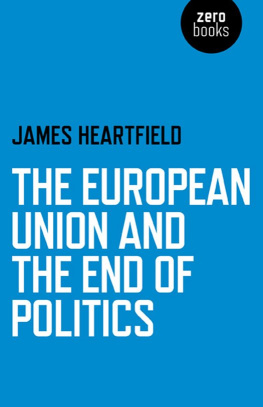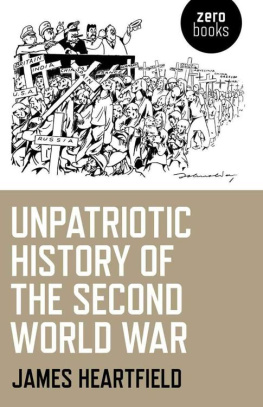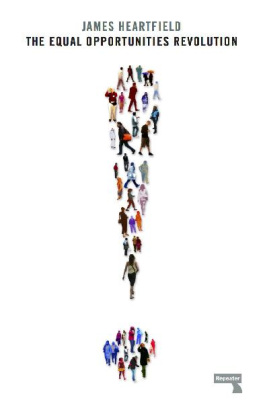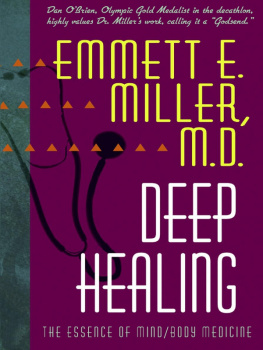First published by Zero Books, 2013
Zero Books is an imprint of John Hunt Publishing Ltd., Laurel House, Station Approach,
Alresford, Hants, SO24 9JH, UK
www.johnhuntpublishing.com
www.zero-books.net
For distributor details and how to order please visit the Ordering section on our website.
Text copyright: James Heartfield 2012
ISBN: 978 1 78099 950 0
All rights reserved. Except for brief quotations in critical articles or reviews, no part of this book may be reproduced in any manner without prior written permission from the publishers.
The rights of James Heartfield as author have been asserted in accordance with the Copyright, Designs and Patents Act 1988.
A CIP catalogue record for this book is available from the British Library.
Design: Stuart Davies
Printed and bound by CPI Group (UK) Ltd, Croydon, CR0 4YY
We operate a distinctive and ethical publishing philosophy in all areas of our business, from our global network of authors to production and worldwide distribution.
CONTENTS
Introduction: The Soft Coup dtat
Winter 2011/12. The Greek parliament is besieged from without by angry protestors. They riot burning down banks and government buildings. The Italian government, too, faces mass opposition a general strike in protest at 450 billion government spending cuts. In Ireland, Spain and many other European countries there are angry protests. But the Greek and Italian governments are not only under pressure from the public. They are answerable to other masters than the electorate.
Greek Prime Minister Lucas Papademos took office on 11 November 2011, though he stood in no election. Before becoming Prime Minister Papademos had been a senior official at the European Central Bank, and an advisor to the outgoing PM George Papandreou. Italian Prime Minister Mario Monti was appointed on 12 November 2011, having been made a life senator three days earlier by President Giorgio Napolitano. Before becoming Prime Minister Mario Monti had been an economics professor and a member of the European Commission. On the face of things, both Papademos and Monti draw their authority from their own parliaments but everyone knows that is not so. Both of these unelected experts came to power in a Soft Coup; both deals were brokered by the European Union, in the middle of a harsh public debt crisis.
In the case of Greece, the European Union had been dealing with Prime Minister George Papandreou, leader of the largest, and best-polling political party in the last democratic elections, PASOK, twisting his arm to agree spending cuts. (Papandreou was under pressure because he owned up to what governments before had hidden that Goldman Sachs had helped the country disguise its debts through creative accounting his reward for such transparency, to be put out of office.) Talks were held between the Greek government, and the Troika of the International Monetary Fund, the European Central Bank and the European Commission. Having agreed one round of cuts after another, Papandreou baulked at just how unpopular these were, and in October said that he would let the people vote on more cuts in a referendum. The European Union was outraged at the idea that the voters should be asked.
The announcement has surprised the whole of Europe, said French President Nicolas Sarkozy. Giving the people a way to express themselves is always legitimate, but the solidarity of all the euro-zone countries cannot be exercised unless everyone agrees to make the necessary efforts. In a parliamentary session in The Hague, Dutch Prime Minister Mark Rutte called the threatened vote a very unfortunate development and said we have to do everything to prevent it. After crisis talks Papandreou agreed to cancel the public vote and to suspend normal party politics in favour of a government of national unity, and to stand down as Prime Minister in favour of Papademos. Robbed of a voice Greek people were more willing to protest and even to riot. German Finance Minister Wolfgang Schuble wants the Greeks to cancel future elections and have a government without any politicians, only experts.
Around the same time another European leader of the right in this case was forced to stand down. Silvio Berlusconi had often been attacked by the European Commission, charged with corruption. But each time the question was put to the polls the wily Berlusconi won over voters. In November 2011, though, the debt crisis gave the Commission the lever it needed to prize Berlusconi out, and he resigned. European Council President Herman van Rompuy told Italians on 11 November 2011 that the country needs reforms, not elections. Mario Monti was appointed Prime Minister and, in turn, appointed a Professors Cabinet, or technocratic government. Montis first reforms were to cut spending and to attack trade unions.

Greeks protest against austerity measures
In a single week the elected governments of two of Europes democracies had been swept aside. At the very moment that Italian and Greek people needed to deal with the problems they faced, they were robbed of the chance. Before they could see their own political representatives argue out the best outcome on party lines, with the parliamentary contest mirroring the contest for votes. The party political system was a lever for ordinary people to push their goals right into the centre of government. But without it, public administration stopped being democratic, or even political. It was called technocratic government as technique, not as a negotiation; mechanical, not through dialogue. Instead of leaders there were experts. Instead of a contest national unity was imposed (though many outside did not feel they were a part of it).
The events of November 2011 were called a Soft Coup, or a coup without tanks. But what Junta was taking over? Even the angriest protestors were not sure who to blame. If there were no tanks, where was the confrontation?
It would be hard to avoid the role that private financiers played appearing at every corner to warn against any backsliding on cuts. The technocrats were not experts in juggling or medicine, but in finance. Mario Monti has been an advisor to Goldman Sachs, Coca Cola and the listing agency Moodys as well as European Commissioner responsible for the Internal Market, Financial Services and Financial Integration, Customs, and Taxation. Massachusetts Institute of Technology graduate Papademos taught economics at Columbia University and even served as senior economist for the Federal Reserve Bank of Boston in 1980, before taking up positions at the National Bank of Greece and the ECB. Not surprisingly the anti-cuts protestors have been outraged to learn that Monti is a member of the secretive Bilderberg Group all of which adds to the sense that government has been subverted by a secret coup led by high finance. Still, pointing the finger of blame at capitalism or finance seems too vague. Down with capitalism, for sure, but does that really tell us any more about the forces arraigned against democracy?
Greek protestors have seen a German hand behind the changes, and they are not wrong. Chancellor Angela Merkel has called loudly for tighter rules on government spending, and for wayward governments to be reined in. In Athens the protestors have even burned the German flag (and alongside it the Swastika flag to heap on the insults) while the newspaper

















